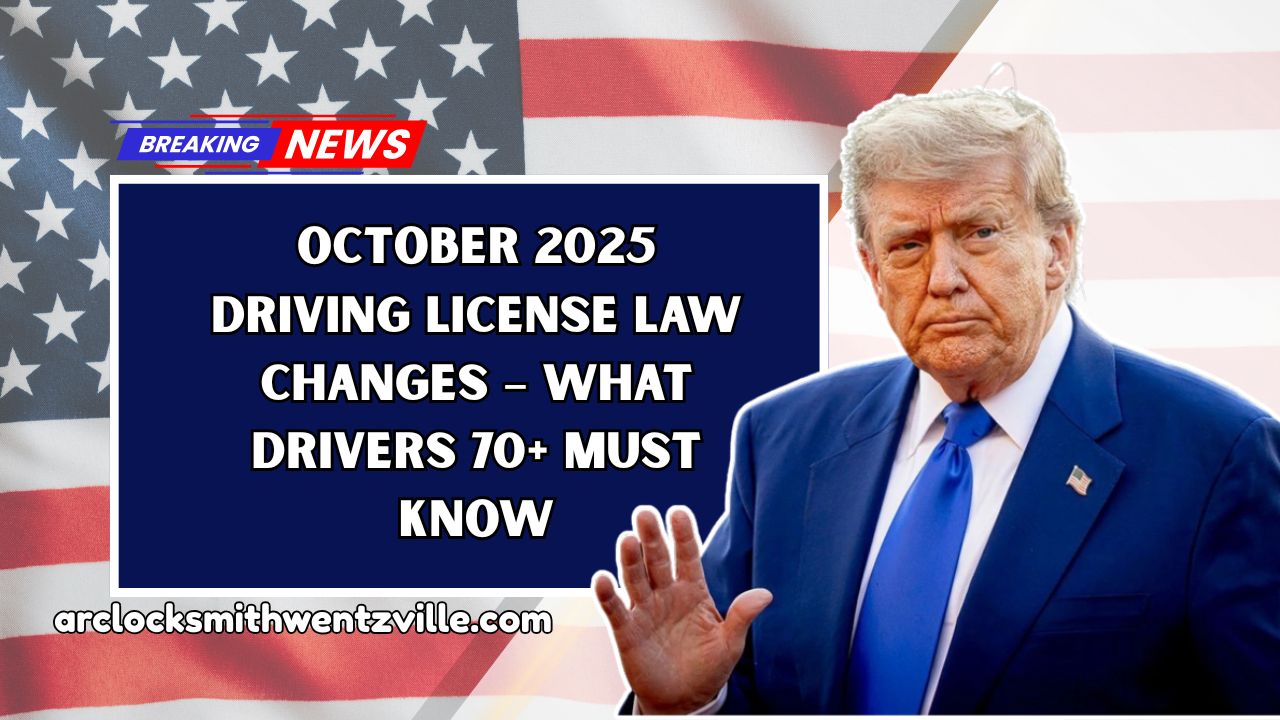From October 2025, the U.S. Department of Transportation will introduce a new nationwide policy that directly impacts drivers aged 70 and above.
This law is designed to ensure road safety while still respecting the independence of senior citizens, who form a growing share of licensed drivers in America.
Millions of older adults rely on their cars to remain active, whether it’s grocery shopping, medical visits, or meeting family.
However, aging naturally brings slower reflexes, declining eyesight, and memory issues. The new law doesn’t revoke licenses just because of age—it instead introduces personalized testing to assess whether seniors can still drive safely.
Why These Changes Are Needed
- Over 48 million Americans aged 65+ hold driver’s licenses.
- By 2030, one in five drivers will be a senior.
- Fatal crash rates per mile increase significantly after age 70.
These statistics highlight the need for smarter policies that balance freedom and safety.
Key Features of the New Law
The new law introduces tiered renewal requirements depending on age and ability.
| Age Group | Renewal Requirement |
|---|---|
| 70–79 years | Standard renewal with vision and reaction test |
| 80–86 years | In-person renewal every 2–4 years |
| 87+ years | Annual road test and medical clearance |
This ensures that as drivers age, their abilities are checked more carefully.
Types of Tests for Older Drivers
Depending on state policies and individual health, seniors may be asked to take:
- Vision Tests – Ensures eyesight meets legal driving standards.
- Cognitive Screenings – Measures reaction time, decision-making, and memory.
- Road Tests – Annual for drivers over 87 or if concerns are reported.
These evaluations aim to spot impairments early before they cause serious accidents.
Reporting Unsafe Drivers
Family members, caregivers, and doctors can report an unsafe driver to the DMV. After receiving a report, the DMV may require the driver to undergo medical or driving evaluations.
Importantly, reports must be based on genuine safety concerns, not personal disputes.
State-by-State Variations
Although this is a federal law, states will enforce it differently.
| State | Special Rule |
|---|---|
| California | In-person renewal required after 70 |
| Florida | Vision test at every renewal after 80 |
| Texas | Annual check-ins after 85 |
| New York | Doctor’s note may be requested at 80+ |
This means seniors must check local DMV rules in addition to the federal law.
Restricted Licenses for Safer Driving
For seniors who can still drive but need limits, restricted licenses may be issued. Restrictions might include:
- Driving only in daylight.
- No highway access.
- Staying within local areas.
This ensures independence without compromising road safety.
Alternatives to Driving
If driving is no longer safe, seniors can turn to:
- Ride-sharing apps like Uber or Lyft.
- Community shuttle services or paratransit programs.
- Volunteer driver programs.
- Support from family and friends.
These options allow seniors to remain mobile without taking risks on the road.
Why This Law Matters
- Safer Roads – Early detection of impairments prevents accidents.
- Fairness – Decisions are based on ability, not age alone.
- Independence – Seniors who can still drive safely won’t lose their freedom.
- Public Confidence – Families and communities will feel safer.
Key Takeaways for Drivers 70+
- Renewal requirements will tighten with age.
- Prepare for vision, reaction, and possibly cognitive testing.
- Keep medical documents ready, especially if you have health issues.
- Explore alternative transport options before stopping driving altogether.
The October 2025 driving license law changes represent a shift toward ability-based evaluations instead of age-based restrictions.
Seniors will still have the chance to drive as long as they meet safety requirements, while restricted licenses and alternatives ensure no one loses mobility suddenly.
Ultimately, the goal is to maintain independence for older drivers while protecting everyone on the road.
FAQs
Who will be affected by the new law?
All drivers in the U.S. aged 70 and above, with stricter renewal requirements as they age.
What types of tests may be required?
Vision tests, reaction-time checks, cognitive screenings, and annual road tests for those aged 87+.
Can seniors still keep their license with conditions?
Yes. Restricted licenses may limit driving to local areas, daytime only, or exclude highways.




